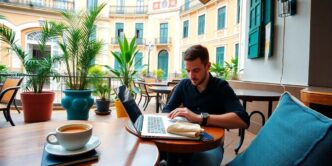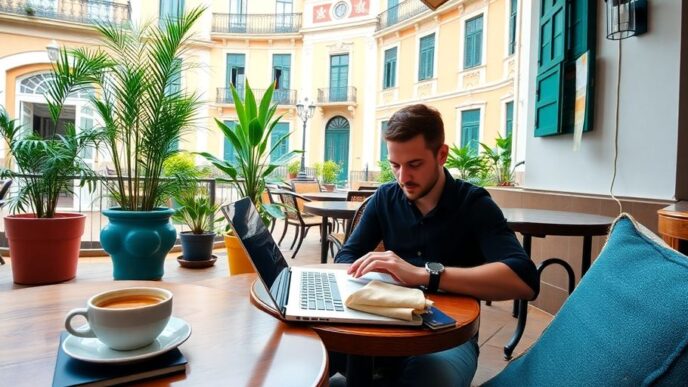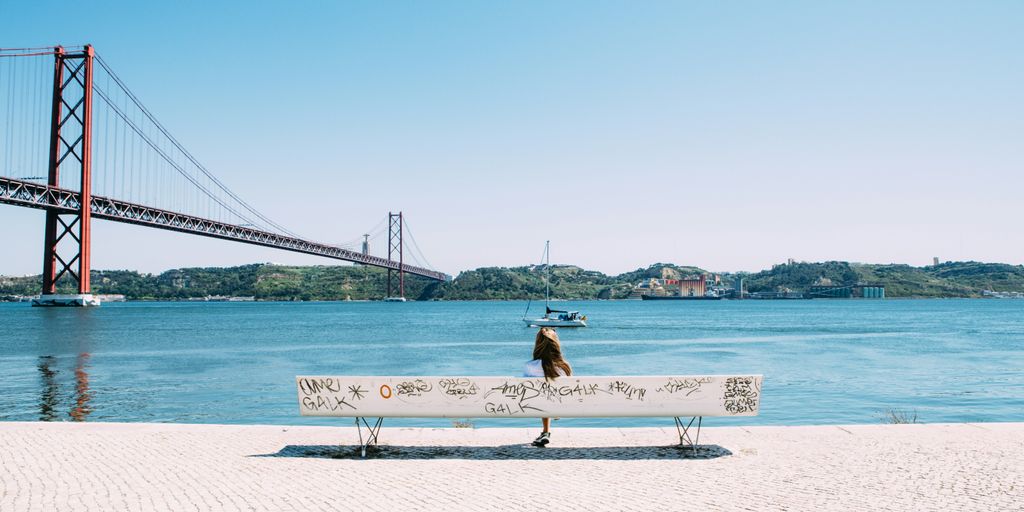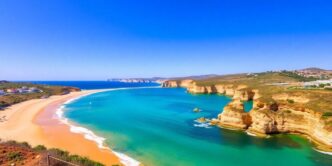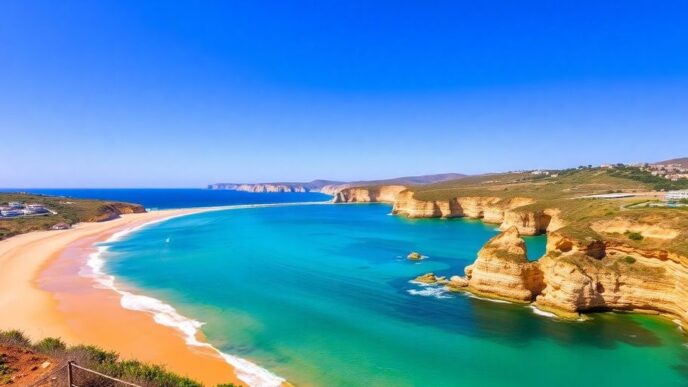Embracing the Remote Lifestyle in Portugal

Navigating the Portugal Digital Nomad Visa
Portugal has become a beacon for digital nomads, offering a blend of pleasant weather, stunning landscapes, and a cost-effective lifestyle. The country has introduced an official digital nomad visa, simplifying the process for remote workers to legally reside in Portugal. This visa is distinct from the D7 visa, which is aimed at those seeking permanent residency.
The Portugal Digital Nomad Visa is initially valid for four months, during which time holders may apply for a two-year residency permit. This permit is renewable, allowing for extended stays. It’s important to note that Portugal’s popularity as a tourist destination can lead to crowded conditions during peak seasons, so planning ahead is advisable.
To ensure a smooth application process, it’s recommended to familiarise yourself with the requirements and necessary paperwork. Reading a comprehensive guide, such as the ‘Portugal Digital Nomad Visa: The Ultimate Guide’, can provide valuable insights and tips for a successful application.
The Algarve: A Remote Worker’s Paradise
The Algarve region has emerged as a top destination for remote workers and digital nomads. Its appeal lies in the combination of stunning beaches, reliable internet connectivity, and a supportive community for those working remotely. The area is not only known for its natural beauty but also for the amenities that cater to a digital nomad’s needs.
In Lagos, the digital nomad community thrives, offering a network of like-minded individuals who share the remote work lifestyle. This sense of community is invaluable for those seeking to integrate into their new surroundings while maintaining productivity. Additionally, the Algarve’s outdoor activities, such as surfing and hiking, provide a perfect way to unwind after a day’s work.
Portugal’s Mediterranean climate is another draw for those looking to escape colder climates. The warm weather and the Digital Nomad Visa, which grants legal residency to remote workers, make the Algarve an even more attractive option. This visa not only allows individuals to work legally in Portugal but also contributes to the local economy and communities.
Integrating Work and Leisure for Optimal Productivity
Achieving a balance between work and leisure is crucial for remote workers in Portugal to maintain productivity and well-being. Planning free time activities is as important as scheduling work tasks. By setting realistic goals and allocating time for rest and relaxation, remote workers can enjoy the benefits of a workation without feeling overwhelmed.
Here are some tips for integrating work and leisure effectively:
- Set Clear Boundaries: Define your work hours and stick to them. This helps in separating work from personal time.
- Plan Leisure Activities: Just like work tasks, plan your leisure activities. Whether it’s a visit to the beach, a hike, or exploring local museums, having these activities scheduled can enhance your overall experience.
- Be Mindful of Workload: Avoid overcommitting to work or leisure. A balanced schedule prevents burnout and allows you to enjoy your stay.
- Embrace Flexibility: Take advantage of the flexibility remote work offers. If an opportunity for an enriching experience arises, be open to adjusting your plans.
A suggested duration for a workation in Portugal is 2-3 weeks, which provides ample time to achieve professional goals while also enjoying the vacation aspect. The table below outlines a balanced weekly schedule for a remote worker in Portugal:
| Day | Work Hours | Leisure Activity |
|---|---|---|
| Monday | 9am – 5pm | Evening walk by the sea |
| Tuesday | 9am – 5pm | Local cuisine tasting |
| Wednesday | 9am – 3pm | Afternoon surf session |
| Thursday | 9am – 5pm | Relax at a local café |
| Friday | 9am – 3pm | Visit a nearby museum |
| Saturday | – | Day trip to a vineyard |
| Sunday | – | Rest and personal time |
This schedule exemplifies how to blend work commitments with the enjoyment of Portugal’s rich culture and natural beauty, ensuring a fulfilling remote work experience.
Strategies for Successful Remote Work in Portugal

Building a Routine in a New Workation Destination
Establishing a routine in a new workation destination is crucial for balancing work and leisure. It’s important to align your work schedule with the time zone of your destination to avoid the frustration of odd working hours. A well-planned schedule ensures effective work time and ample opportunity to explore your surroundings.
Creating a routine involves several key steps:
- Identify the local working hours that align with your home time zone and client availability.
- Set clear work boundaries to separate your professional and personal time.
- Plan your free time activities in advance to maximize your leisure experience.
- Choose a work-friendly environment that meets technical needs and inspires productivity.
By addressing these aspects, you lay the groundwork for an efficient and enjoyable workation, blending a professional setting with the inspiring backdrop of your chosen destination.
Managing Time Across Different Time Zones
Working remotely from Portugal often means collaborating with teams and clients across various time zones. This can be a challenge, but with the right strategies, it can also be an opportunity for increased productivity. Here are some tips to manage your time effectively when dealing with time differences:
-
Embrace the Down Time: Use the hours when others are offline to focus on tasks that require deep concentration. This can lead to more productive work sessions with fewer interruptions.
-
Prioritize Tasks: Align your work with the overlapping hours of your team’s time zone. Tackle critical and time-sensitive tasks during these periods to ensure collaboration and maintain unity within the team.
-
Self-Care: Adjusting to a different time zone can be taxing. Remember to schedule breaks and maintain a healthy work-life balance to avoid burnout.
-
Regular Check-Ins: Keep communication lines open with regular updates and check-ins. This helps in staying aligned with your team despite the distance.
-
Use Time Zone Converters: Tools like online time zone converters are invaluable for scheduling meetings and understanding deadlines in different time zones.
Working with teams from places like Mexico, the US, or Argentina means adapting to a time difference of 4 to 9 hours behind CET. By implementing these strategies, you can ensure that you’re not just keeping up, but excelling in a global remote work environment.
Ensuring Reliable Connectivity and Workspace Essentials
A stable Internet connection is the cornerstone of a successful remote work experience in Portugal. Before settling into your new workation spot, it’s crucial to verify the Internet speed and reliability. Conducting a speed test can provide a clear picture of what to expect from your local connection. For added security, consider a backup mobile data plan to avoid any unexpected disruptions.
Creating a comfortable and functional workspace is equally important. Assess the proximity of amenities such as supermarkets, restaurants, and public transportation. Depending on your location, a rental car might be necessary for flexibility and to maximize the enjoyment of your stay.
Digital tools play a pivotal role in centralising information, especially for teams dispersed across different locations. Cloud storage and document management systems are essential for seamless access to work materials. Ensure that these tools are part of your setup to maintain productivity and organisation.
Lastly, don’t overlook the importance of tech essentials that can enhance your remote working experience. Read our recommended list here.


